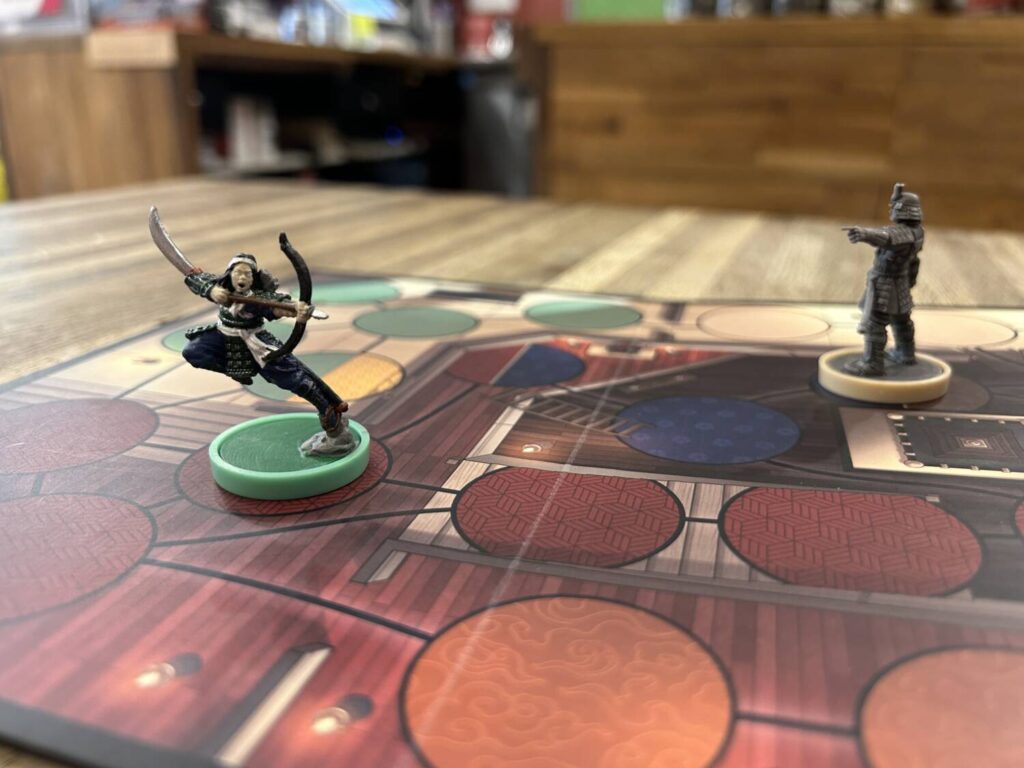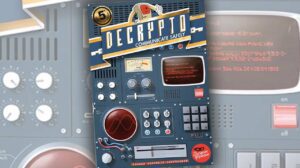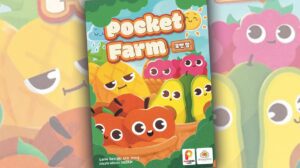Disclosure: Meeple Mountain received a free copy of this product in exchange for an honest, unbiased review. This review is not intended to be an endorsement.
Unmatched as a series is based on a simple, perfect premise, one as old as humanity: Who would win in a fight? Throughout the six years the system has been available at retail, this two-to-four player dueling game has allowed players to throw together an impressively wide variety of characters, both licensed and un-. If your grade school recesses were consumed with purely theoretical conversations about matchups between Achilles and Doctor Strange, you can finally put those ideas into praxis.
Ever since its release, I’ve danced around Unmatched without committing. I’m not big on the licensed sets—your Marvel superheroes, your Buffies the Vampire Slayer—but I have been intrigued by the choices from the public domain. The idea of The Invisible Man and Houdini throwing down appeals to me. The newest set, Sun’s Origin, falls into the latter category, with two new fighters drawn from Japanese history.

Logan v Mark
Meeple Mountain has twice covered Unmatched before. Though both writers came to notably divergent conclusions, their summations of the system are similar. In his review of the first several volumes, Logan wrote, “The mechanics in Unmatched are fine. Solid, even, if sometimes overly luck-dependent. But not inspired.” Mark, meanwhile, summarized it with a bit more vinegar: “You and your opponent pick a character, place your character and sidekick on a gorgeous map, then yell numbers at each other until one of you can’t do it anymore.”
They’re both right.
Each character comes with a unique deck, featuring cards primarily used for attack and defense. On your turn, you have to do two actions: you can attack, play a Scheme card, or maneuver.
To attack, you have to make sure your opponent is in range. Most characters, including this set’s Oda Nobunaga, attack adjacent spaces. Ranged characters, like Tomoe Gozen, can attack any character on the board occupying the same Zone, which is indicated by the different colors and textures in each circle. This is, it must be said, a beautiful and intuitive way to handle line of sight.
The attacking player chooses an Attack card from their hand and places it face-down on the table. The defending player can then opt to play a Defense card or not. This is when Mark’s yelling of numbers comes in. The damage prevented by the Defense card is subtracted from the damage done by the Attack card, and the defender takes the difference in damage.
There is more to it than that. Mark’s description is funny, but it’s also harsh, or at least overly-simplistic (He acknowledges as much a sentence or two later). Many of the Attack and Defense cards have abilities that trigger before, during, or after the attack. Playing those well impacts how you fare in the long run.
Back to the actions. Scheme cards are one-time events that give you a boost of some kind. They’re always good, and often key to figuring out your deck’s strengths.
Maneuvering is how you spend most of your time. You draw a card, which is mandatory, then you can choose to move as far as your character allows. Your thoughts on Maneuvering will likely be your thoughts on Unmatched. If you find meaning in the movement, which I came to do, you’ll probably like the game. If it feels repetitive and obnoxious, that’s that. Of the two friends I played the most with, Josh said, “I like the movement, but I didn’t like the combat.” Boris, on the other hand, “liked the combat, but didn’t like the movement.”
Make of that what you will.
For myself, I think Maneuvering is full of good tradeoffs. The board isn’t big enough for most characters to run away forever. The other player can catch up by Boosting their movement with a card from their hand. The board is spacious, but it’s not that spacious. You’re constantly dancing around, trying to position yourself well.

Luck v Strategy
I don’t know Unmatched well enough to comment on the balance of the two characters introduced here in terms of the larger system. They are certainly well-suited to one another. Anecdotally, I would tell you that Tomoe Gozen is initially the more difficult character, but familiarity seems to erase that issue. I love the way the Zones on the included map approximate a three-story house with an open central column. Gozen can shoot characters on the opposite side of the map if they’re a floor down from her. It’s clever, without being obstructive.
My first few plays were hampered by a major personal issue: I don’t like games in which players slowly reduce one another’s health. Most of the time, I find it tedious. I still do, but after repeated plays of Unmatched, I started to see the story. I could picture Oda Nobunaga shouting orders at his Honor Guard, telling them to climb the opposite staircase. I could see the camera cut in close on Gozen as she tried to work out an escape route.
Two subsequent games with a different set confirmed what I was beginning to suspect: Unmatched isn’t meant to be a deliberate game of skill. That’s not the appeal. It’s much better to think of Unmatched as an action movie. It’s silly and dramatic. At its best, a game of Unmatched is full of reversals, big swings, and final desperate plays. If you want a dueling game with a ridiculous skill ceiling, check out the Exceed system, or Sakura Arms. If you want something that makes you feel like you’re watching TNT on a Sunday afternoon in 1998, play Unmatched.











Add Comment